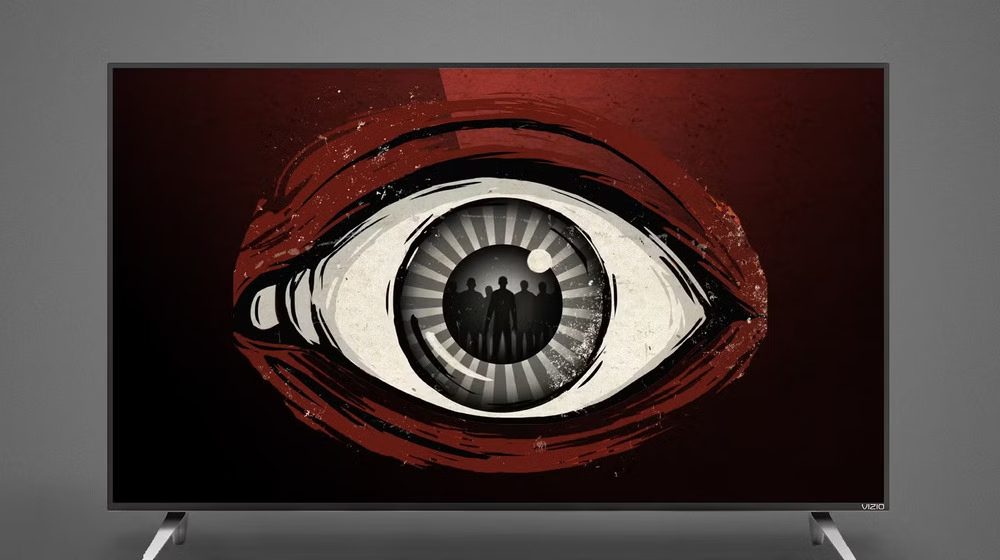Introduction
Smart TVs have revolutionized home entertainment, offering streaming services, voice commands, and internet connectivity at the click of a remote. But this convenience comes with a hidden trade-off: your privacy. As these devices grow smarter, so does their ability to monitor your habits, preferences, and even conversations. This blog explores how smart TVs collect your data, why it matters, and what you can do to protect yourself.
How Smart TVs Spy on You
Modern smart TVs are equipped with sensors, microphones, and software designed to track your every move. Here’s how they gather data:
- Viewing Habits:
Smart TVs log what you watch, when you watch it, and for how long. This data is often shared with third-party advertisers to tailor ads. In 2017, Vizio settled with the FTC for $2.2 million after it was caught collecting viewing data without user consent. - Voice Recognition:
Voice-activated features like Alexa or Google Assistant require constant microphone access. While convenient, these systems can inadvertently record private conversations. Samsung once faced backlash when its privacy policy warned users, “Please be aware that if your spoken words include personal or other sensitive information, that information will be among the data captured and transmitted to a third party.” - Connected Devices:
Smart TVs sync with phones, tablets, and home networks, creating a detailed map of your digital life. This includes app usage, browsing history, and even location data.
Why This Should Concern You
The data collected might seem harmless, but it poses significant risks:
- Privacy Invasion: Your viewing habits can reveal personal details—political leanings, health concerns, or financial status. A 2019 Consumer Reports study found 81% of smart TVs transmit data to third parties like Netflix and Google.
- Targeted Manipulation: Advertisers use this data to influence purchases, while streaming platforms might hike subscription prices based on your binge-watching patterns.
- Security Vulnerabilities: Hackers can exploit weak security protocols to access microphones, cameras, or sensitive information. In 2020, a flaw in Roku’s system exposed millions of user accounts.
The Business Model Behind the Spying
Why do manufacturers prioritize data collection? The answer lies in profit. Smart TVs are often sold at razor-thin margins, with companies recouping losses by monetizing user data. Brands like LG and Sony partner with ad firms to sell insights into consumer behavior, creating a $23 billion connected TV ad industry. As Wired noted, “You’re not the customer—you’re the product.”
How to Protect Your Privacy
While opting out entirely is tough, these steps can minimize risks:
- Disable Data Tracking:
Navigate to your TV’s settings and turn off “Automatic Content Recognition” (ACR) and personalized ads. Reset your advertising ID regularly. - Mute the Mic:
Physically disconnect or disable voice assistants when not in use. Cover built-in cameras with tape. - Use a VPN:
A virtual private network encrypts internet traffic, shielding your activity from prying eyes. - Avoid Smart Features:
Use external streaming devices (e.g., Apple TV, Fire Stick) with stronger privacy controls. - Update Firmware:
Regular updates patch security flaws. Enable automatic updates if possible.
The Fight for Accountability
Regulators are slowly stepping in. Europe’s GDPR mandates transparency in data collection, while California’s CCPA grants residents the right to opt out. However, enforcement remains inconsistent. Advocacy groups like the Electronic Frontier Foundation urge stricter laws to hold manufacturers accountable.
Conclusion
Smart TVs exemplify the paradox of modern tech: the smarter the device, the greater the privacy risks. While these gadgets offer unparalleled convenience, users must weigh the benefits against the erosion of their digital autonomy. By staying informed and proactive, you can enjoy your favorite shows without becoming a data commodity. As the adage goes, “If you’re not paying for the product, you are the product.
